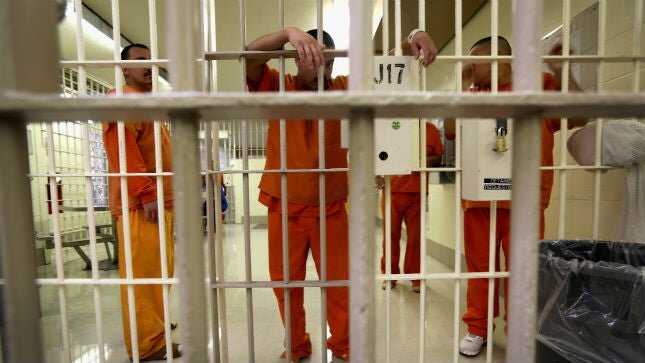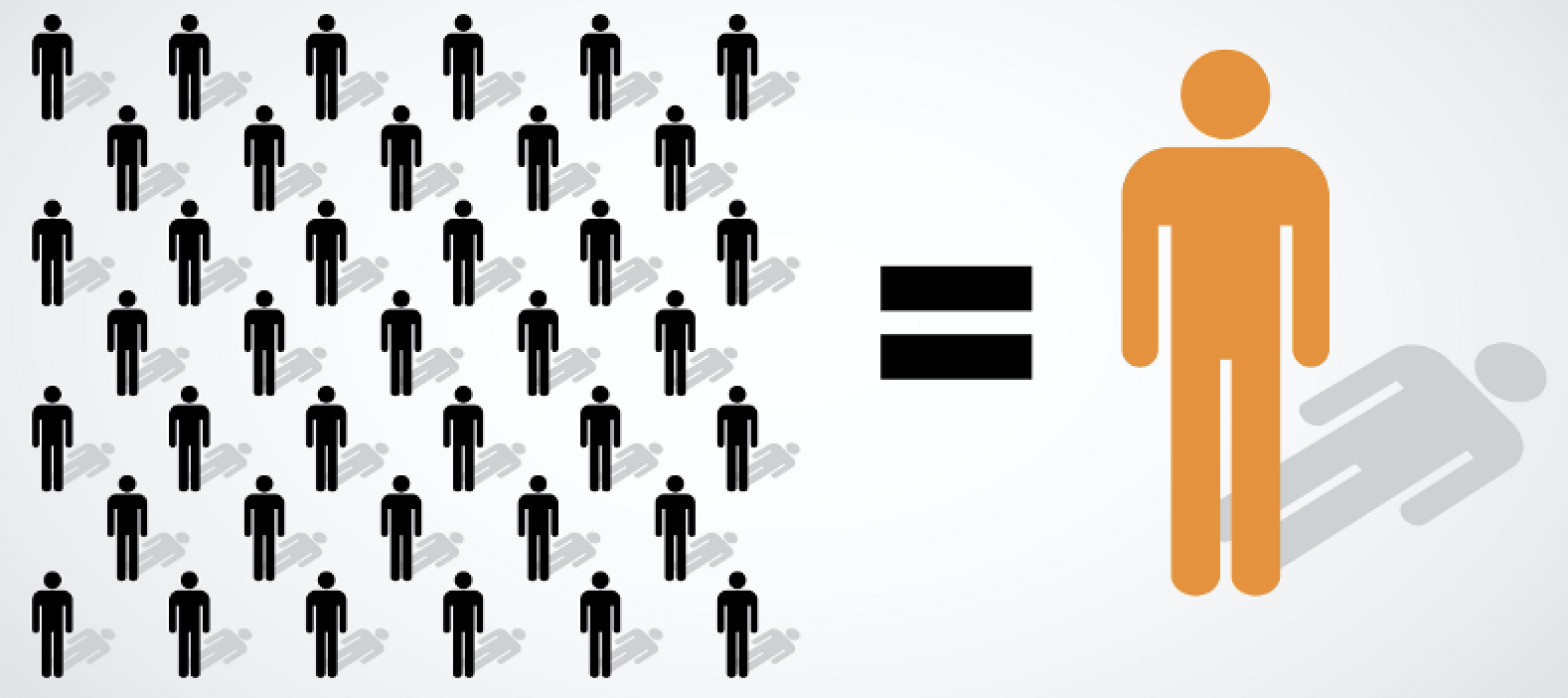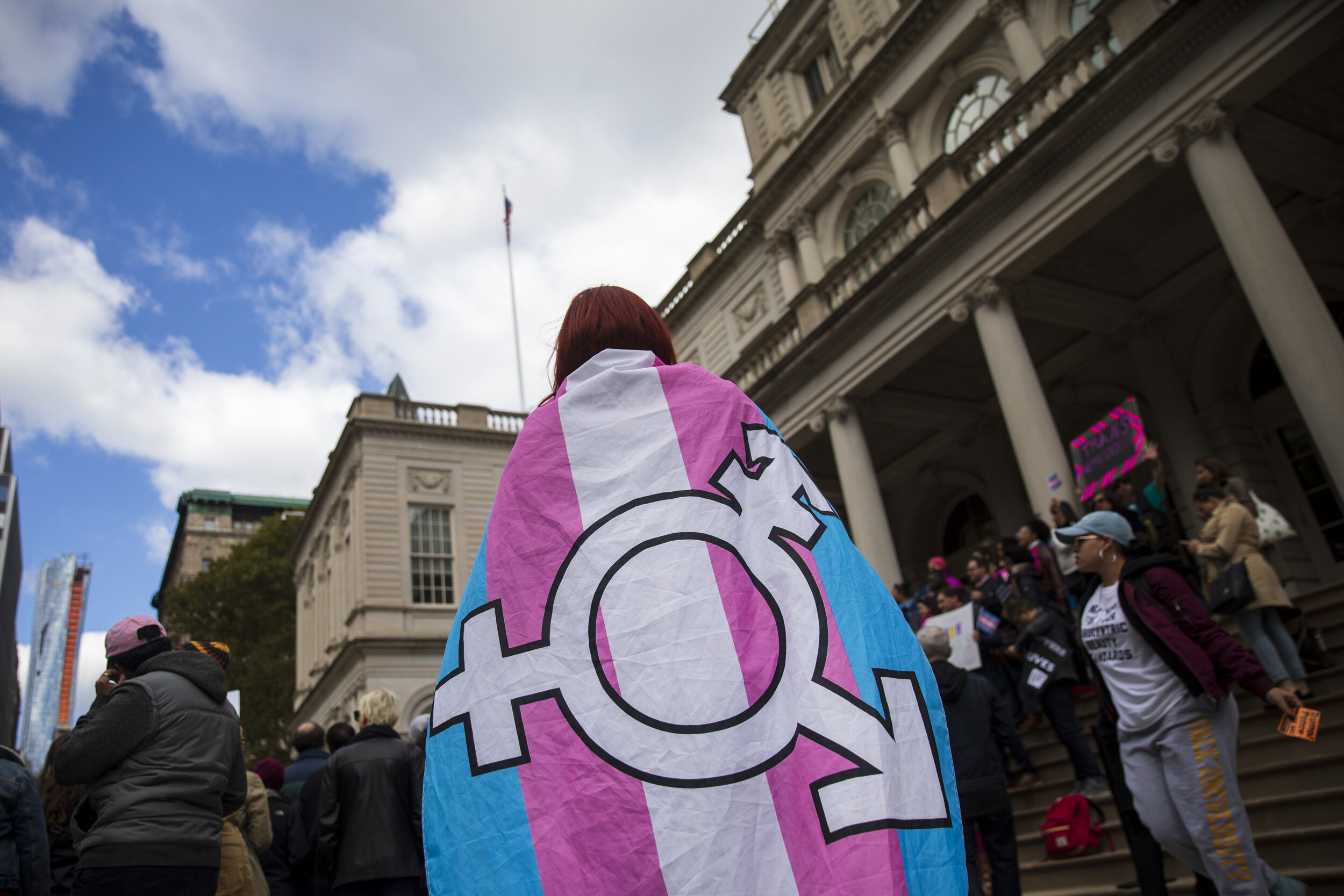
PRACTITIONER BLOG
Read our analyses of developments in Impact Litigation and stay current on class action law

Eastern District of New York Grants Class Certification to Incarcerated People Who Faced Inhumane Conditions
Plaintiffs also alleged that MDC staff failed to provide them adequate food and clothing and deprived them of access to hot water for cleaning, bathing, and laundry. Plaintiffs were forced to wash themselves in their cell sinks with cold water or forego washing for fear of getting sick. One resident suffering from ulcerative colitis had bloody bedding that had not been changed because of the lack of laundry services. Other incarcerated people with chronic medical conditions did not receive their medication and were unable to receive medical treatment. Class members also reported not being able to use their CPAP machines, not having access to mental health staff, and even enduring dirty bandages that had not been changed in weeks.

Impact Fund and Amici: Ninth Circuit’s New “De Minimis” Standard for Predominance Is Wrong and Disadvantages Workers
Our brief argues that the panel’s decision is inconsistent with decades of Supreme Court and Ninth Circuit precedent regarding class certification and trials challenging employment discrimination and other workplace violations, such as wage theft. To require plaintiffs to demonstrate no more than a “de minimis” number of uninjured class members at the class certification stage forces district courts to engage in a full-blown inquiry into the merits of the case, an inquiry which the Supreme Court and the Ninth Circuit have repeatedly stated courts are expressly forbidden to undertake at that stage.

Uninjured Class Members - How Many Is Too Many? Ninth Circuit Weighs In On Class Action Article III Standing
So how exactly does Article III work in a class action? It is generally understood that, at the outset of a class action, Article III standing is determined based on the claims of the named plaintiffs. At the tail end, if the case goes to judgment, unnamed class members must prove an Article III injury in order to receive damages. But what about in the middle of the case? What about at class certification?

Impact Fund and Western Center on Law and Poverty Reach Settlement with USDA to Provide Emergency Food (SNAP) Assistance to Californians with Greatest Need
Over one million California households will soon be eligible to receive emergency COVID-19 related nutrition assistance, thanks in part to a settlement agreement reached yesterday by the Impact Fund, Western Center on Law and Poverty, and the U.S. Department of Agriculture. This important victory comes after ten months of litigation in Hall v. USDA, which challenged the Department’s interpretation of the March 2020 law authorizing emergency Supplemental Nutrition Assistance Program (SNAP) payments—otherwise known as food stamps—to current SNAP recipients. Within hours of the settlement, USDA issued new guidance announcing a policy change that will provide at minimum $95 a month in emergency assistance to all households participating in SNAP on top of their regular monthly benefits. This updated policy will ensure the lowest-income Californians will have access to vital nutrition assistance while continuing to deal with the severe economic and public health consequences of the COVID-19 pandemic.

Unanimous SCOTUS decision in Ford case a big win for consumers, clarifies doctrine of personal jurisdiction
The Supreme Court’s recent 8-0 decision in Ford Motor v. Montana Eighth Judicial District Court, No. 19-368 (U.S.S.C. March 25, 2021), on personal jurisdiction is a feast for those who love civil procedure and a victory for consumers. The case is about whether state courts can exercise specific personal jurisdiction over a corporate defendant in individual personal injury actions and was an effort by a global corporate defendant to push Bristol-Myers still further in the direction of limiting the forums in which victims of corporate malfeasance may sue defendants. In this case, Ford got no traction from any of the justices even those who were in the majority in Bristol-Myers.

Impact Fund Sponsor Huntington Bank serves in pro bono role for Flint Water Crisis Settlement
In early 2021, a $641 million settlement between the residents and businesses of Flint and various government defendants received Preliminary Approval by the Court. Nearly 90,000 Flint residents were impacted by the Flint water crisis, and the settlement will create a compensation fund to help those affected, predominantly children. Huntington Bank, selected by Special Master Deborah Greenspan, is working with Counsel, the Claims Administrator, and the Court in support of the settlement fund for the victims. As a leader in the community, Huntington volunteered to serve as escrow agent and distribution bank on a pro bono basis. Huntington has also committed to partner with local leaders and community organizations to identify financial and socioeconomic barriers faced in the region.

Real People, Real Checks! Class Members Tell Us What It Means To Them
Settlement checks can add up to a significant amount. Some of the regular viewers on our website, Top Class Actions, know this to be true. These awesome individuals, our biggest fans, write to tell us about how they were able to qualify for enough settlements to recoup $1,000 or $3000, $4,000 a year. That's a lot of money for most people. It reminds me that when we’re engaging with communities on social media, like our teachers who live paycheck to paycheck, we are saying to them: This is your money—submit your claim!

How COVID-19 is Changing the Class Action Landscape
Class actions are on the rise, and many class action practitioners predict that it will continue to grow because of the COVID-19 pandemic. In fact, as of this past December, over 1,400 class actions related to losses tied to the pandemic were filed and the number will only continue to increase. Filed cases span the country with the most cases currently being filed in California, Illinois, New York, and Florida. The amount of class actions that may result from the pandemic are almost endless. It is certain that courts will see an increase in the ‘failure to refund’ cases, since this issue affected several different groups of consumers. However, other classes could pop up in the courts over the next year or so.

Impact Fund and NAACP Legal Defense Fund to SCOTUS: Don’t Rewrite Typicality
The Impact Fund and NAACP Legal Defense and Educational Fund, Inc. filed an amicus brief in the U.S. Supreme Court on behalf of ourselves and twenty-four civil rights organizations. We argue that Ramirez indisputably satisfied typicality, as every class member in the case presented the same claims, were subject to the same conduct, and sought the same relief as Ramirez did. “TransUnion seeks to turn Rule 23 typicality on its head, asking the high court to rewrite the rule to protect defendants rather than absent class members,” declared Impact Fund’s Executive Director Jocelyn Larkin. “Nothing in the language or purpose of the rule supports TransUnion’s approach.”

Impact Fund & Amici Support State Efforts to Protect Vulnerable Workers During Deadly Pandemic
The California Department of Industrial Relations, Division of Occupational Safety and Health has a duty to keep California workers safe. Our amicus briefs make clear that the state fulfilled its duty in this instance. The Emergency Temporary Standards provide basic, necessary workplace protections for all workers and serve as an important step toward mitigating the health, income, and racial inequities caused by the COVID-19 pandemic.

Impact Fund and Legal Aid at Work Settle Workplace Harassment Claims of Transgender San Francisco Police Sergeant
Refusing to use a transgender worker’s chosen name and appropriate pronouns violates California law, which forbids harassment or discrimination against a transgender employee because of their gender identity. “The harmful misgendering that Sergeant Paul experienced created a hostile work environment and interfered with his ability to perform his job. That’s harassment, and it is illegal,” said Lindsay Nako, the Impact Fund’s Director of Litigation and Training.

Impact Fund Supports Groundbreaking Class Action Litigation For Colorado's Transgender Prisoners
In Colorado’s prisons, trans women have been fighting to survive and fighting for their rights for years. Kandice Raven lives with permanent injuries that she sustained in multiple severe beatings carried out by groups of transphobic men. Jane Gallentine has been trafficked, treated as property and repeatedly sexually abused, including by one man who tattooed his name on her neck to convey “ownership,” and by another man employed as a prison guard. Amber Miller has again and again requested officials’ help in escaping her abusers and found that the only way to get a response is to break prison rules or engage in self-harm to keep herself safe. In response to their fearless self-advocacy, the Colorado prisons have responded by transferring Kandice, Jane, and Amber to a series of more and more restrictive—and more and more dangerous—prisons and prison units.

Impact Fund & Amici to Eleventh Circuit: Eliminating Service Awards Endangers Class Actions
A recent decision by the Eleventh Circuit Court of Appeals stunned the class action and civil rights community. In Johnson v. NPAS Solutions., LLC, 975 F.3d 1244, a 2-1 majority ruled that service awards for class representatives in class actions are categorically unlawful.On October 29, the Impact Fund filed an amicus brief calling on the full Eleventh Circuit to review the decision en banc. Our amicus brief on behalf of civil rights groups argues that service payments and incentive awards appropriately compensate plaintiffs for the considerable responsibility they undertake in class action cases and on behalf of fellow class members.

Rural Pride Summit To Strengthen Advocacy Network for Underserved LGBTQ Californians
National estimates suggest that between 2.9 million and 3.8 million LGBTQ people, about 15-20% of the total U.S. LGBTQ population, live in rural areas. Rural LGBTQ people are often experience unique challenges that their counterparts in urban and suburban areas do not. For example, because jobs, healthcare providers, and adequate housing are already limited, LGBTQ people have fewer alternatives should they face discrimination. And with limited access to legal representation, discriminatory conduct can go unchallenged.

Impact Fund Applauds California Supreme Court Decision to Adjust the Bar Exam Passing Score
By adjusting the cut score, California is making a bold step toward ensuring that its community of lawyers reflects the diversity of the state. By the State Bar’s own estimates, setting the cut score at 1390 would allow 20% more test-takers overall to pass—including approximately 40% more Black, 26% Latino, 26% Asian and 27% other minority attorneys joining the bar’s ranks each testing session.

Protect Nutrition Assistance for Vulnerable Low-Income Adults, Say Impact Fund and Others in Amicus Brief
Last Thursday, the Impact Fund, Western Center on Law and Poverty, and Pillsbury Winthrop Shaw Pittman LLC filed an amicus brief on behalf of our organizations and 27 additional legal and advocacy organizations in California, including a number of anti-hunger groups, in support of the plaintiffs in the D.C. case. Our brief focuses specifically on discretionary exemptions, which will be critical to California’s economic recovery. We detail the legislative debates considering and ultimately rejecting the very same changes that USDA seeks to implement, the plain language and history of the statute, and the harm that California faces if it loses its reserve of over 850,000 exemptions. California uses discretionary exemptions to prevent hunger in communities that face special difficulties in finding work, such as people who are formerly incarcerated or young adults aging out of the foster care system. If USDA’s rule goes into effect, it will eliminate the State’s reserve and could cause thousands of Californians to go hungry.

SCOTUS Rules that Title VII Protects LGBTQ Employees from Discrimination
The effects of this decision for the LGBTQ community are sweeping. To date, twenty-five states and three territories still do not prohibit employment discrimination on the basis of sexual orientation and/or gender identity. Meanwhile, 25% of LGBTQ workers report experiencing discrimination at work and 80% of transgender workers report experiencing discrimination or taking steps to avoid it. Because of Bostock v. Clayton County, LGBTQ workers in every state and territory are now protected from discrimination and harassment under federal law—meaning they can seek relief through the Equal Employment Opportunity Commission and federal courts. Other communities also stand to benefit from the decision’s unequivocal language declaring the breadth of Title VII’s protections.

SNAP! Impact Fund and Western Center on Law and Poverty File Class Action Lawsuit Against USDA For Denying Emergency Food Assistance To Californians With Greatest Need
On May 21, 2020, the Impact Fund and the Western Center on Law and Poverty filed a class action lawsuit in federal court in San Francisco against USDA and Secretary of Agriculture Sonny Perdue, alleging that USDA is illegally denying emergency food aid to the poorest households in California. We argue that USDA is misinterpreting the Families First Act in violation of the Administrative Procedure Act. “The idea that people who were already struggling to get by before the crisis should not receive the additional help being granted to other SNAP recipients is cruel and absurd,” said Alexander Prieto, a senior litigator for Western Center on Law & Poverty. “It goes against the intent of the Families First Act, which is why we are seeking relief for our clients.”

Sixth Circuit Ruling Restricts Imposition of Arbitration
A recent Sixth Circuit decision, Taylor v. Pilot Corp, broadly reaffirms that an agreement to arbitrate must be just that—an agreement. It suggests that questions about the formation of that agreement must be decided by a court—not an arbitrator. And it reaffirms the courts’ power to supervise discovery going to the question of contract formation without interference from appellate courts or arbitrators.

Answering Question Left Open by SCOTUS, D.C. and Seventh Circuits Side With Plaintiffs on Specific Personal Jurisdiction in Class Actions
In quick succession last week, the D.C. and Seventh Circuits handed down two decisions favorable to class action plaintiffs on specific personal jurisdiction in federal court. So, good news for plaintiffs today, but these cases are not the last we will hear on this subject.
